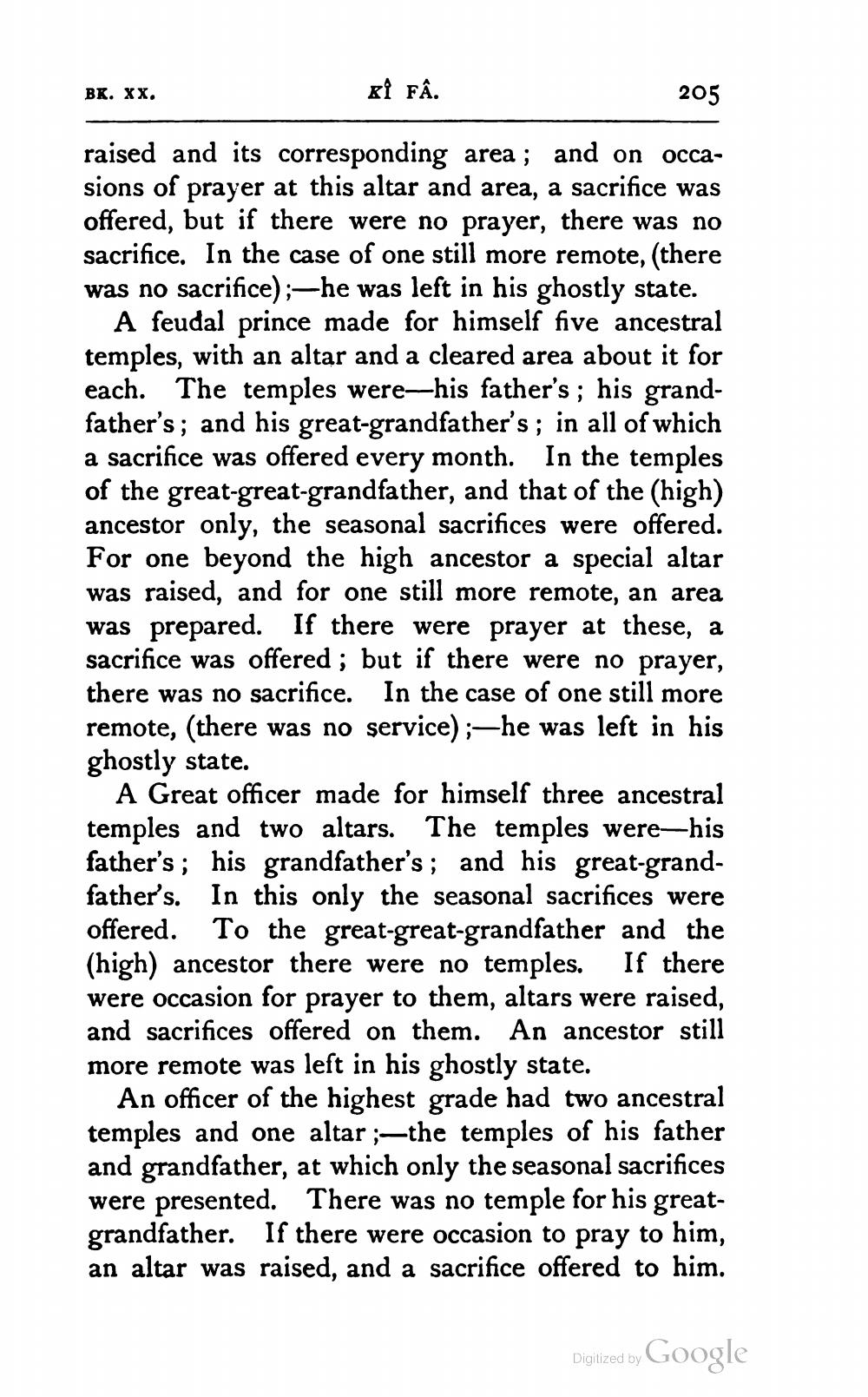________________
BK. XX.
xi Fâ.
205
raised and its corresponding area ; and on occasions of prayer at this altar and area, a sacrifice was offered, but if there were no prayer, there was no sacrifice. In the case of one still more remote, (there was no sacrifice);—he was left in his ghostly state.
A feudal prince made for himself five ancestral temples, with an altar and a cleared area about it for each. The temples were-his father's; his grandfather's; and his great-grandfather's; in all of which a sacrifice was offered every month. In the temples of the great-great-grandfather, and that of the (high) ancestor only, the seasonal sacrifices were offered. For one beyond the high ancestor a special altar was raised, and for one still more remote, an area was prepared. If there were prayer at these, a sacrifice was offered ; but if there were no prayer, there was no sacrifice. In the case of one still more remote, (there was no service);—he was left in his ghostly state.
A Great officer made for himself three ancestral temples and two altars. The temples were-his father's; his grandfather's; and his great-grandfather's. In this only the seasonal sacrifices were offered. To the great-great-grandfather and the (high) ancestor there were no temples. If there were occasion for prayer to them, altars were raised, and sacrifices offered on them. An ancestor still more remote was left in his ghostly state.
An officer of the highest grade had two ancestral temples and one altar ;—the temples of his father and grandfather, at which only the seasonal sacrifices were presented. There was no temple for his greatgrandfather. If there were occasion to pray to him, an altar was raised, and a sacrifice offered to him.
Digitized by Google




